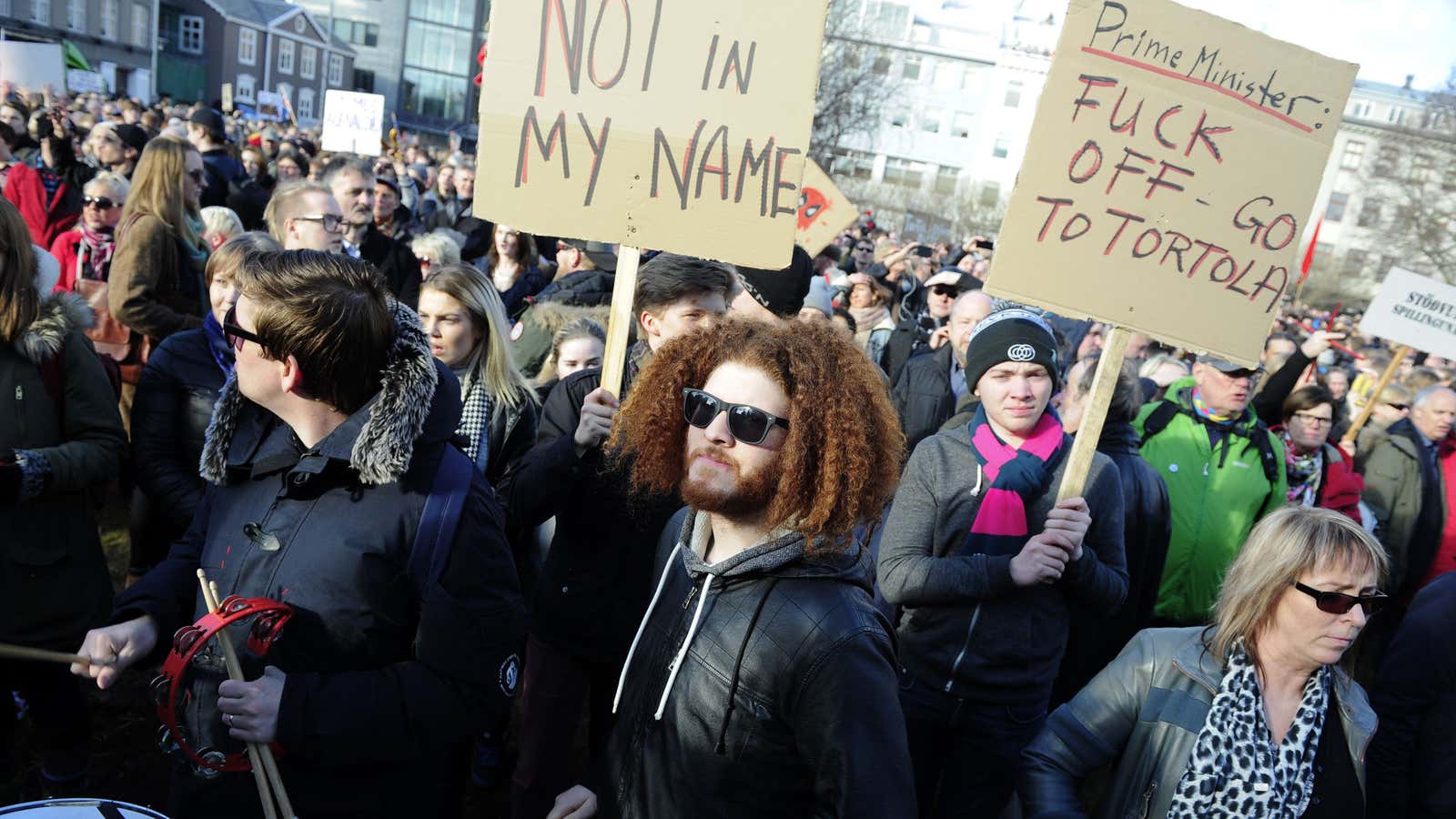Iceland is in the midst of a political upheaval. On April 3, the Panama Papers, a trove of leaked documents that expose how many world leaders hide their wealth, revealed that the country’s prime minister and his wife had a secret offshore company. The next day, thousands of Icelanders joined the island’s biggest protest in years, pressuring Sigmundur David Gunnlaugsson to step down.
His replacement will likely be an internal affair for the ruling coalition, but both Gunnlaugsson and opposition parties have called for a snap general election. If Icelanders were to cast their ballots today, the overwhelming winner would be the country’s Pirate Party, with 43% percent of voter support, according to an opinion poll by Gallup and Icelandic media.
Icelanders “were really shocked to see themselves through the eyes of the world like that… they want a new government. They want a vote,” Birgitta Jonsdottir, the unofficial leader of the Pirate Party, told The Sydney Morning Herald. The Panama Papers have also linked two Icelandic cabinet members to offshore companies.
Jonsdottir is a former Wikileaks spokesperson and a self-described “poetician.” Her party’s popularity has been on the rise for months. It calls for more direct democracy measures and more lenient copyright laws, but also for shorter work weeks and breaking up banks.
Jonsdottir told the Herald she was surprised by the party’s wide appeal. “It’s not only because we are a party that has not been a part of government, I think it is also because people sense that we present changes that revolve around changing the systems, rather than changing minor things that might easily be changed back, which seems to be the pattern of modern politics.”
